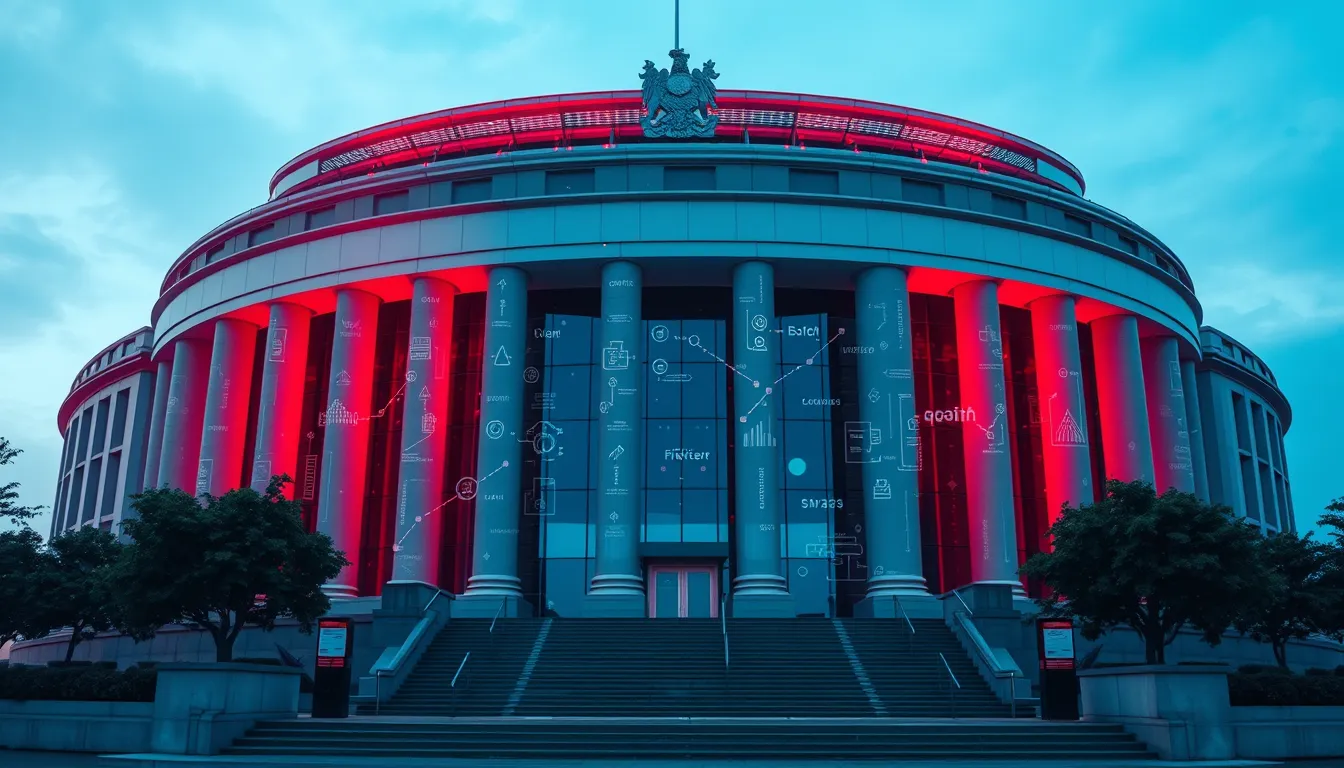Now Reading: Controversial AI Legal Battle: Copyright Lawsuit Unfolds
-
01
Controversial AI Legal Battle: Copyright Lawsuit Unfolds
Controversial AI Legal Battle: Copyright Lawsuit Unfolds

Controversial AI Legal Battle: Copyright Lawsuit Unfolds
In a groundbreaking development, a contentious AI legal battle has emerged that could reshape the way artificial intelligence leverages and disseminates copyrighted content. This unprecedented copyright lawsuit has seen venerable institutions like Encyclopedia Britannica and Merriam-Webster taking legal action against Perplexity AI, challenging the methods in which AI aggregates and repurposes intellectual property.
Background of the Legal Dispute
The lawsuit was initiated as Encyclopedia Britannica and Merriam-Webster discovered that Perplexity AI had been integrating significant amounts of their curated content. The plaintiffs argue that the AI platform was using copyrighted materials—from detailed encyclopedia entries to precise dictionary definitions—without obtaining the necessary licenses. This case not only highlights the current AI legal battle but also questions the ethical implications of AI using copyrighted content.
Details of the Copyright Case
According to legal filings, Perplexity AI’s strategy involves data aggregation techniques that repurpose valuable intellectual property without proper compensation. In this context, the AI legal battle addresses several key legal challenges:
- Unauthorized use of curated content
- Bypassing traditional licensing channels
- Disruption of established intellectual property rights
The implications of this case extend well beyond the companies involved. This legal battle may set a precedent for similar disputes in the future, impacting how AI data scraping and content licensing are regulated across multiple industries.
Ethical and Legal Implications
A significant focus of the debate is the ethical implications of AI using copyrighted content. Critics argue that by harvesting curated data, companies undermine the intellectual labor that goes into creating high-quality, authoritative information. Legal experts emphasize that this AI legal battle could redefine the legal boundaries for how AI models are allowed to train on existing data.
Moreover, the legal implications of AI data scraping are intensifying as regulators consider stricter enforcement measures. This lawsuit confronts long-standing issues such as:
- The challenges of AI training data copyright
- Legal implications related to unsanctioned content use
- Impact of generative AI on intellectual property rights
By addressing these matters, the ongoing AI legal battle sparks an important dialogue about balancing innovation with legal and ethical responsibilities.
Industry Impact and Future Outlook
The outcome of this copyright lawsuit is poised to influence not only the tech industry but also traditional content creators. As the AI legal battle unfolds, there are two potential paths ahead. The first is a reaffirmation of strict content protection measures, ensuring that data harvesting by AI platforms is properly licensed and regulated. The second possibility is the adoption of a more flexible licensing model that considers the unique challenges of training AI systems on large data sets.
Furthermore, stakeholders from different sectors—ranging from academic publishers to digital media organizations—are closely monitoring this dispute. The case raises pivotal questions about the ownership of data and the ethical considerations that arise when advanced technologies intersect with traditional forms of content creation.
Some key takeaways from this case include:
- Recognition of the need for modernized intellectual property laws
- Increased scrutiny of AI content licensing practices
- The potential for ongoing legal battles as new technological paradigms emerge
The legal proceedings also bring attention to secondary topics like Perplexity AI’s role in modern data aggregation. As emphasis on intellectual property rights grows, future regulations may focus more on protecting the rights of original creators while still fostering innovation. This dual approach is essential in resolving the inherent tension present in the digital age.
Deep Dive into the Legal and Ethical Dimensions
The ethical implications of using copyrighted content for AI training have long been debated. On one hand, the innovation brought about by the integration of AI in various sectors is undeniable. On the other, this progress raises essential questions concerning fairness, compensation, and respect for intellectual property. This AI legal battle forces us to re-evaluate traditional models of data usage, and it challenges the legal frameworks that have historically governed how such content is shared and monetized.
In addition, legal experts warn that the implications of AI data scraping extend far into future technological developments. As AI systems grow more sophisticated, ensuring that they operate within clearly defined legal boundaries will be crucial. The current lawsuit is a reminder that as we navigate this evolving landscape, a balance must be struck between leveraging technology for societal benefit and safeguarding the rights of content creators.
Conclusion
This controversial AI legal battle is more than just a dispute over the unauthorized use of content—it is a pivotal moment for intellectual property law in the digital era. As the battle progresses, its outcomes will likely influence future regulations around AI, setting a benchmark for ethical and legal standards in data usage. In a world where AI continues to redefine how we interact with information, the lessons learned from this copyright lawsuit will be invaluable.
Ultimately, the resolution of this case may pave the way for new licensing models tailored for AI, ensuring that both innovation and intellectual property rights are upheld. The implications of this lawsuit extend well beyond the courtroom, potentially shaping the future for all stakeholders involved in the rapidly evolving intersection between technology and law.
As observers continue to analyze and debate these issues, one truth remains clear: the clash between traditional knowledge curation and modern AI practices is here to stay, and its impact will be felt across the global landscape for years to come. The AI legal battle thus serves as a critical juncture in understanding how we value and protect the creation of knowledge in the age of digital transformation.

























